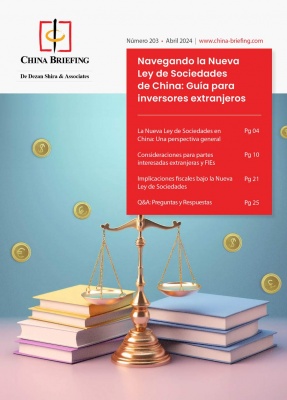Understanding the Basics of China’s Labor Law
By Cathy Gao
SHANGHAI, May 26 – For most foreigners, the world of China business can be a high-stakes gamble. There are the issues of language and culture working against the uninitiated and the fear that gathered information may not be the most accurate.
China’s labor law is a first and intends to protect employee rights in all written and verbal contracts. In the long run, it should boost productivity and prevent frequent employee turnover.
I advise companies to make the effort to sift through all the information, daunting as it may seem at first, and confirm sources. Ignorance of the law is no defense.
There are seven essential topics covered by the new law: contracts, requisite clauses, non-fixed term contracts, termination and expiration of the contract, and compensation and penalties.
On the subject of contracts, the labor law requires employers to sign written contracts with employees within one month of starting work. An employer failing to do so within that one month will be penalized depending on how long it took before the employee contract was formalized. Over a month but less than a year will have to pay double the salary of the employee, while a delay of more than a year would mean that the employer has finished the non-fixed labor contract.
The law has pegged salary levels to not less than the minimum level for the municipality and not less than the lowest salary of a similar position in the company. Employees on probation need to be paid at least 80 percent of their contractual salaries.
Generally, the law encourages long-term contracts to minimize compensation risks that come with signing two-fixed contracts then moving on to a non-fixed contract.
The labor law also lists in detail grounds for an employer to terminate an employment contract without giving notice or severance pay. As for an employee, one is given the right to terminate an employment contract without reason for as long as they give 30 days notice.
A company layoff is defined by the labor law defines as decreasing the workforce by 20 people or 10 percent or more of the total employees. Thirty days prior to implementing a layoff, the employer is required to explain its situation to its labor union and local labor administration department.
When the company chooses to terminate an employee or discontinue an employment contract, it is required to compensate the employee based on the length of employment and average salary for the last 12 months. A rule of thumb would be one month salary for every year of employment served.
Although, the labor law sets a limit to the amount of compensation an employee can receive at no more than three times the average monthly payment for employees as specified by the local municipality.
The law also says that a company will need to consult with its labor union or employee representatives before enforcing any rule that will directly affect its employees. These include regulations concerning work hours, vacation leave, salary, and safety.
A company is required to provide an employment manual written in the local language that outlines company rules.
For example, in Shanghai, a wholly foreign-owned enterprise or joint-venture would be asked to establish a labor union or in the absence of one, organize employee representatives. In the instance that company rules violate the labor law, the labor union has the right to request for the company to change said rules.
Cathy Gao is a business advisory service associate with Dezan Shira & Associates.
For more information and advice, please contact legal@dezshira.com.
Related reading
China’s New Labor Contract Law: Getting into Compliance
- Previous Article Dragon Boat Festival Approaches
- Next Article China Merges Telecoms in the Name of Competition
























